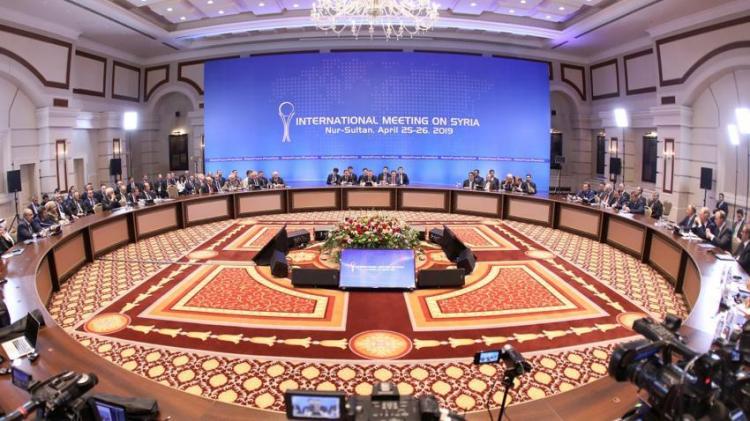Moscow – North-Press Agency
Fahim Al-Sorani
One week to go for the new round of Astana negotiations regarding the Syrian crisis, as new efforts exerted to end the conflict in Syria amidst a complex situation that faces the dilemma toward the interests of all concerned parties, whether internal or external, in any political settlement.
The main framework for the Russian-Iranian-Turkish “Troika” is Astana, which is marked by a clear decline in the role of the United Nations in this complicated issue, with the entry of both Iraq and Lebanon into the format of the participants, albeit as observers.
The 13th round will be a “reconsideration” of the past applied understandings, and a measure of the success of the three guarantor countries, Turkey, Russia, and Iran, on the implementation of agreements on maintaining stability in the northwestern governorate of Idlib, amid an overlap of political and military scenes.
Turkish Obstacle
According to Amro Al-Deeb, the researcher of international affairs at the University of Nizhny Novgorod, the attempts to draw up understandings regarding the future of the settlement in Syria, which seemed to enter a positive turn, have collided with the failure of Turkish President Recep Tayyip Erdogan to fulfill his commitments on redeployment and the areas of reducing the escalation.
Al-Deeb said in an exclusive interview with North-Press that the situation in Idlib is likely “to explode at any time, because of the ongoing fighting between the Syrian government forces and the armed opposition groups, after the failure of separation between the terrorist groups and the moderate ones”.
On the other hand, Al-Deeb expressed his pessimism that the next round of Astana talks would lead to significant progress in the light of Turkey’s continued “Occupation of Syrian territories as well as the occupation of other areas by the US, Britain and France, besides Israeli attempts to maintain instability in the south of the country, while intensifying its targeting of several positions inside Syria, especially with every time a close round to discuss the political solution is mentioned.
Moreover, he pointed out that the role of regional players complicates matters even if there is a rapprochement between Russia and the US, which means that one side cannot solve the crisis on its own, in addition to the lack of common will to achieve this goal.
The researcher of international affairs at the University of Nizhny Novgorod, Amro Al-Deeb, considered the failure of the previous 12 rounds of Astana has caused a breach the Syrian crisis, in addition to the continued military escalation in the north, which clearly breaks the Russian-Turkish understandings, which decreases the chances of success of the next round, In parallel with the US attempts to block the political path, because of being outside Astana formula, As well as sensing the conflict between Washington and Ankara over the S-400 missile system deal, which will further complicate the matters in terms of formulating common stances for the parties.

